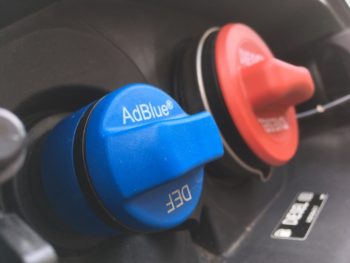Germany targets older diesels to curb air pollution
Germany’s biggest carmakers are to incentivise drivers in the country’s most polluted cities to swap out of Euro 5 and older diesel cars, or fund upgrades to reduce emissions, following the federal government’s clean air plan which was released this week.

Manufacturers are being asked to fund software and hardware upgrades to make older diesels emit less NOx.
There are 14 cities with nitrogen dioxide emissions above the legal limit of 40mg/km. Munich is the most polluted, at almost twice that figure, while Stuttgart, Cologne and Reutlingen are 50% over. Duren, Hamburg, Limburg ad Lahn, Dusseldorf, Kiel, Heilbronn, Backnang, Darmstadt, Bochum and Ludwigsburg are also facing action to cut pollution.
The federal government said it wants to bring these cities in line with legal limits as quickly as possible, with as little disruption for residents as possible. It has set a billion Euros aside to help affected municipalities to retro-fit light and heavy-duty commercial vehicles with selective catalytic reduction (SCR). It said manufacturers must fund hardware (SCR) and software upgrades for the 6.3m affected passenger cars.
These measures are aimed at avoiding driving bans, which the government said are less effective at reducing NOx. However, these can also be implemented where necessary. There will be a central database of vehicles’ emissions performance, which local traffic control authorities can access to avoid requiring a sticker-based system. It said vehicle owners in the affected cities should be compensated for any loss of vehicle residual value if they trade their car in.
Germany’s car manufacturers have been quick to announce incentive schemes, but their approaches vary. Daimler will offer up to €10,000 if drivers of Euro 4 and 5 diesels trade in for the latest Euro 6c or 6d models, while BMW Group is providing up to a €6,000 purchase incentive and said 50% of its Euro 5 cars will have had a software update by the beginning of next year.
Volkswagen Group will offer up to €4,000 for trading in Euro 4 models or older, or €5,000 for Euro 5 cars, plus residual value compensation. It said hardware upgrades are variable, and cause both increased fuel consumption and a loss of comfort.

